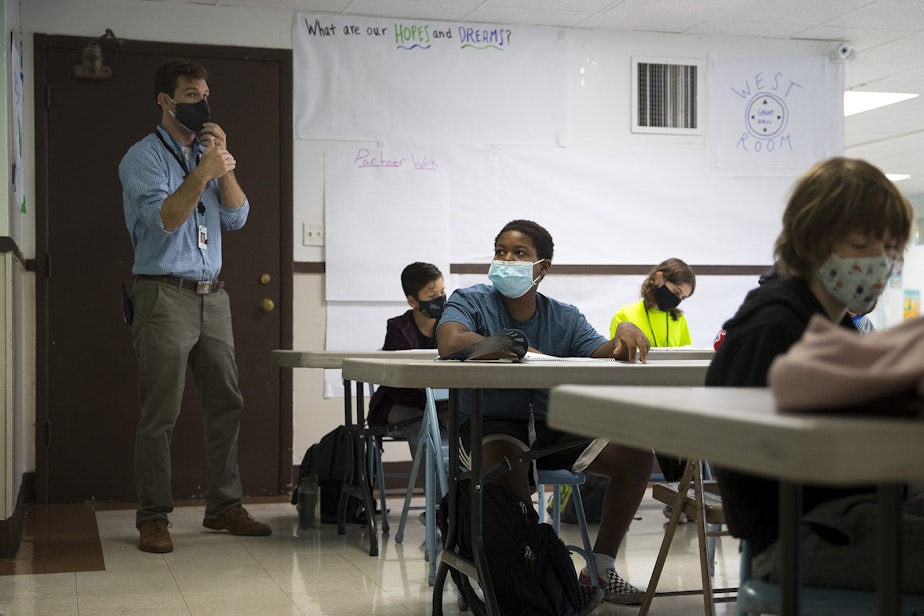Has summer school helped in the fight against pandemic learning loss?

The pandemic has been devastating for student learning, and summer school has been one of the most widely used approaches to overcome it. But has it paid off?
Answer: Somewhat.
That’s according to a new report published by CALDER. It’s a collaboration between the Virginia-based American Institutes for Research and scholars at 11 universities, including the University of Washington.
The study, which is based on academic data across eight U.S. school districts, found that students who attended summer school last year didn’t do any better in reading, and saw only slight improvements in math.
Dan Goldhaber, a University of Washington researcher and co-author of the study, called the findings a “glass is half full; glass is half empty kind of story.”
Sponsored
“What our results suggest is that you can’t expect summer school to be enough to get kids back on track,” he said. “It has to be a multifaceted set of strategies.”
Other approaches include tutoring, longer school days, or year-round school.
That’s why he thinks schools should consider expanding summer school, which is usually an optional program. The study found that, on average, the overall participation rate at the districts included in the study was about 15%.
“So maybe you want to do more to encourage more kids to participate,” he said.
The findings are another sign that the scale and intensity of Covid recovery efforts at schools remain far below what is needed, the study authors write. And, they say, the situation is especially dire as federal pandemic relief provided to schools expires next fall.
Sponsored
And even if test scores don’t show it, Goldhaber said summer school is still valuable and any improvement is a good thing — especially considering the steep academic consequences of Covid.
Researchers at Harvard and Stanford universities have found the average Washington student lost over five months of learning in math, and about three months in reading between 2019 and 2022.




